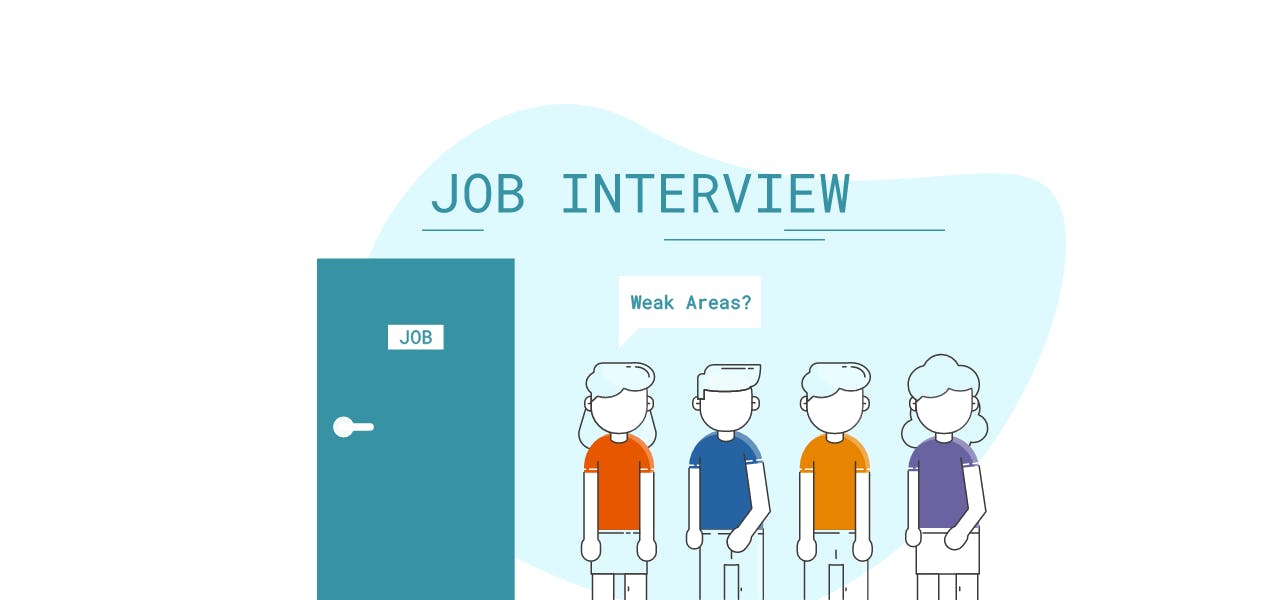The stress of a job interview is something almost all of us have to fight through eventually in our lives. Unless your dream job falls in your lap, you’re going to have to prove your talents and skills and earn your way into each position you obtain along your professional path. Exactly how stressful each interview will be depends on how invested you are in being hired for the position and how much effort you put into preparing yourself.
Many interviewing strategies tell you to focus on playing up your strengths and flattering the interviewer by researching the company and its mission and recent projects. But where most people end up tripping themselves up during what would otherwise be a strong interview is when they are asked about their weak areas. Hiring managers who pose this question to an applicant are not doing so because they want to see you sweat. They have a reason behind it and an answer they’re looking for. Don’t get caught off guard when you hear this question. Use these tips to help you formulate your response.
Why Employers Want to Know Your Weaknesses
We all want to show off the areas we’re good at to a potential employer. It makes sense, since it’s those areas that we think are going to help us land the job. But if you know your weaknesses, that is also seen as a strength, and here’s why.
Wise managers who have been around the block a time or two understand that the best employees aren’t always those with the most hard skills under their belt. Employees that will stick around, be flexible and trainable, and bring the most to the team include those with soft skills that are evidenced when they talk about their weaknesses.
When an employer asks you this question, without a doubt, they are looking to see how well you know yourself and how much humility you have. They’re not looking for apologies that you’re not the strongest in a technical skill that is part of the job. That can be taught. They want to see your ability to self-reflect, your understanding and awareness of how your weaknesses can help you improve and grow, and how humble you are when you discuss your own weak areas. Additionally, they’re weighing your strengths and weaknesses with the people you’d be ultimately working with to see how you’ll assimilate into the team.
Preparing to Answer the “Weak Area” Question
Before you get started reflecting in on your strengths and weaknesses, make sure you understand this key bit of knowledge: Employers are not looking for apologies or trying to call you out about your missing pieces in your job skills. The trick is to be humble, but not apologetic. Tell them where your weak areas are, but don’t apologize for them. Don’t try to rationalize why you never learned this skill or you’re not the best at that one. Point out the weak area, acknowledge how it has affected your career path, and give a quick summary of how you are currently in the process of strengthening this area.
With that said, you’re going to have to pick out a weak area and work at it to be able to answer this question. You definitely don’t want to say you don’t have any weaknesses. That’s an immediate deterrent.
When you’re trying to decide what your weakness is, think about challenges that you’ve had in your previous jobs or at school and how you were unable to handle or delayed with handling certain aspects because of a limitation. Have any of your previous supervisors suggested areas of improvement? Those are great places to start.
You don’t need a laundry list of self-improvement ideas. Don’t include as a weakness a skill that you know is inherent to the job description, either. But examples of “weak areas” that you could use to strengthen your interview include things like:
● Public speaking concerns
● Difficulty taking big risks; overthinking
● Discomfort with delegating tasks to others
● Taking on more than your share of responsibilities and overworking
● Easily frustrated with people who don’t do their job
● Uncomfortable talking to people you don’t know
These are some examples of areas of weakness that an employer would be comfortable with hearing from you. As long as you know you’re willing to work on that area and grow, and you can explain how it has impacted you in the past but you’ve overcome it, talking about these weaknesses can actually improve your job interview’s success potential.
